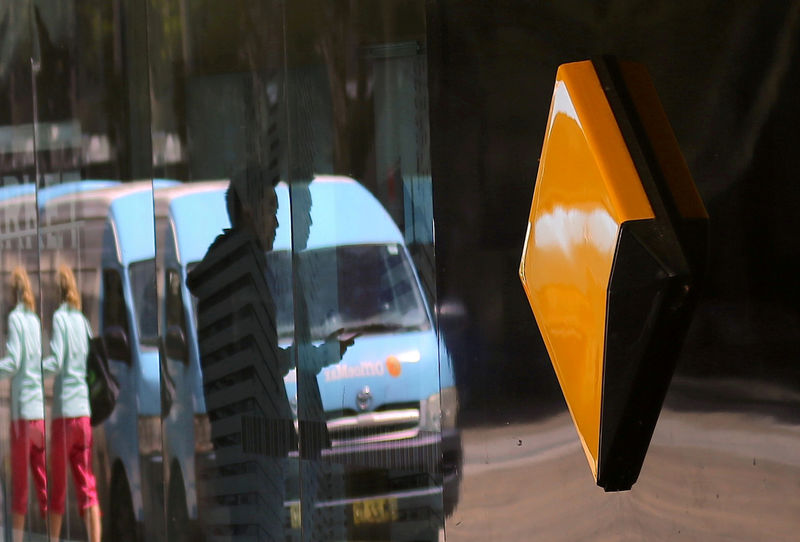By Lewis Jackson and Byron Kaye
SYDNEY (Reuters) -Australia's biggest lenders said on Tuesday the domestic financial sector was unlikely to be caught in turmoil engulfing rivals in the US and Europe, but warned that raging competition to sell home loans and attract deposits was hitting margins.
Regulators and bankers insist the country’s banks, bolstered by post-global financial crisis reforms are well placed to handle the solvency and liquidity shocks that rocked lenders overseas like Silicon Valley Bank in the U.S.
A stress test announced by an Australian prudential regulator on Tuesday found bank capital would stay above minimum levels in a doomsday scenario where unemployment rose to 11%, house prices fell 43% and cyber attacks hit the major banks.
But what has helped insulate the banks from trouble overseas - reliance on mortgages and retail deposits – now threatens to hurt profitability, with competition for loans and deposits intensifying, the chiefs of Australia’s top and third-largest lenders and other bank executives told a summit in Sydney.
"It's the most competitive market for mortgages that I've seen in my career," Westpac Chief Executive Peter King, who started at the bank in 1994, said at the Australian Financial Review Banking Summit.
Roughly A$300 billion ($200 billion) worth of fixed-rate loans expire this year and customers leery about moving to higher priced products are shopping for a better deal, say banks.
Westpac's managing director of mortgages Richard Burton said the bank was offering prospective customers A$3,500 in cash, an offer he said was common across the industry.
On the other side of the balance sheet, competition is heating up for deposits as the banks look to shore up funding, following a period when the banks benefited from raising rates on loans faster than deposit rates.
Regulators noticed and in February, the competition watchdog launched an inquiry into savings rates.
"There's a very real discussion to be had about the lags in passing on interest rate rises to deposit holders," Assistant Treasurer Stephen Jones said at the summit.
Aftershocks from the banking crisis overseas are also raising wholesale funding costs at a time when the major banks need to refinance hundreds of billions in debt. Macquarie research published earlier this month put the extra cost at around 8 to 10 basis points over the next three years.
Commonwealth Bank Chief Executive Matt Comyn said on Tuesday at the summit that pressures in funding markets "will lift the intensity, all things being equal, around deposits" and could lead to different pricing decisions.
($1 = 1.4952 Australian dollars)
